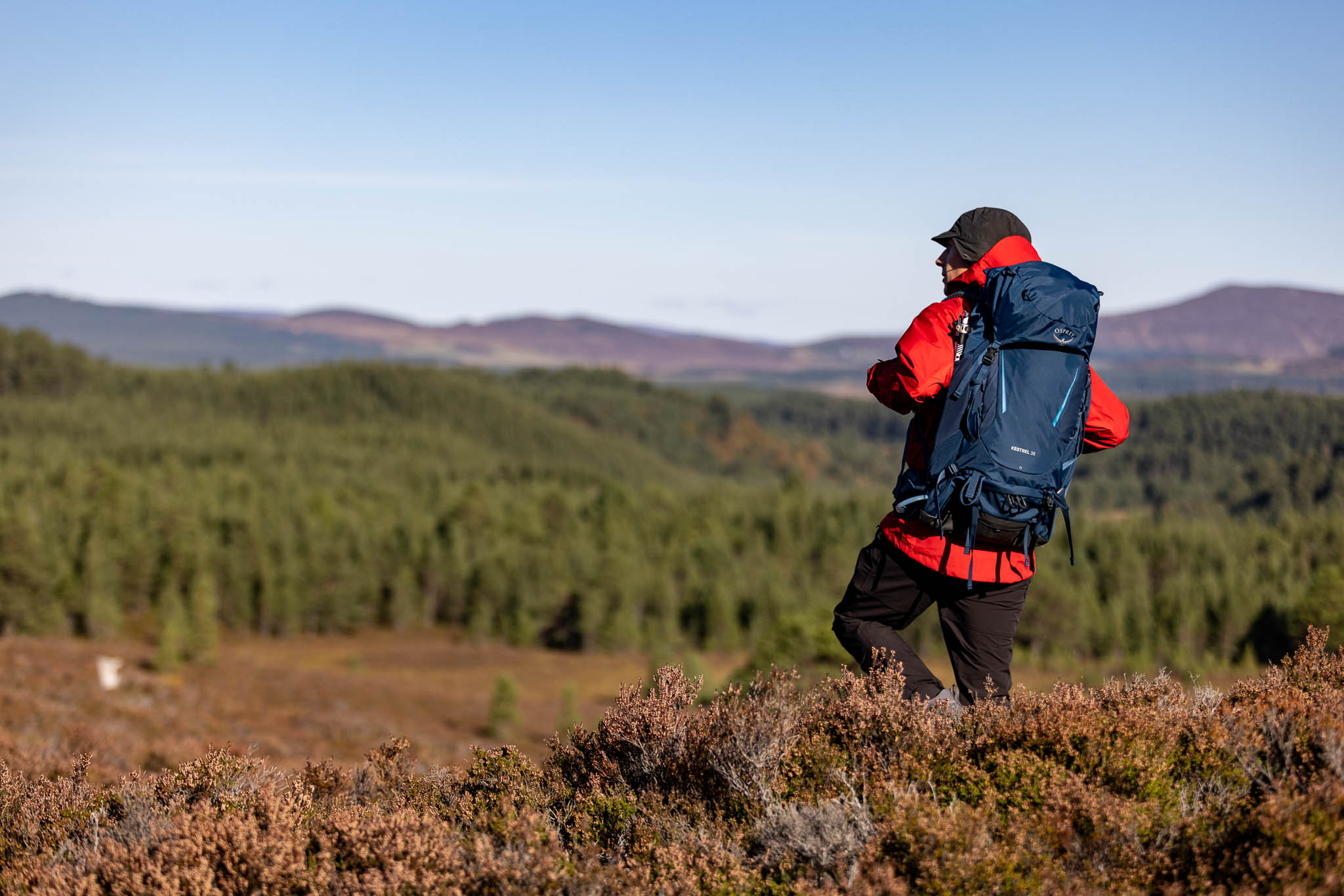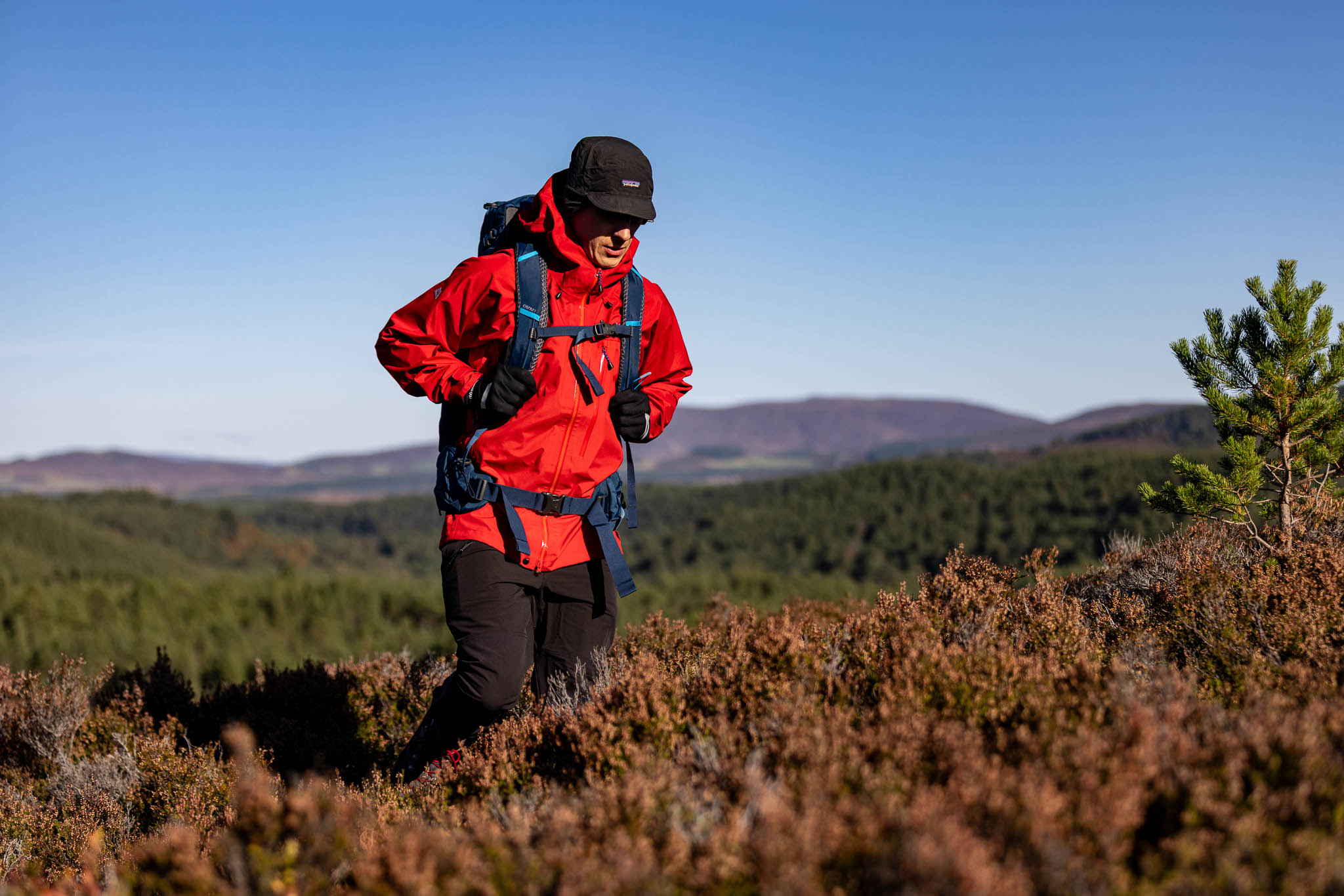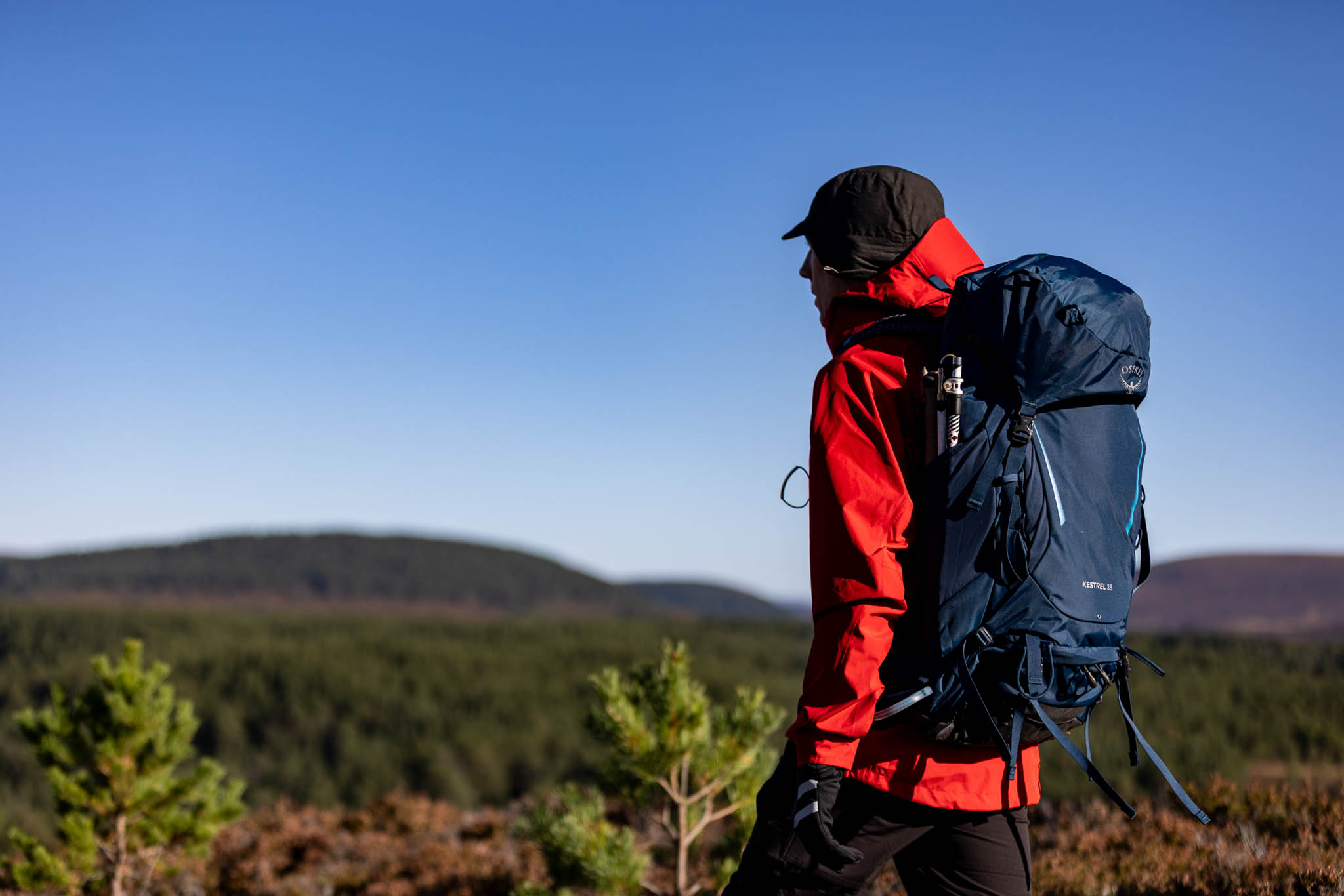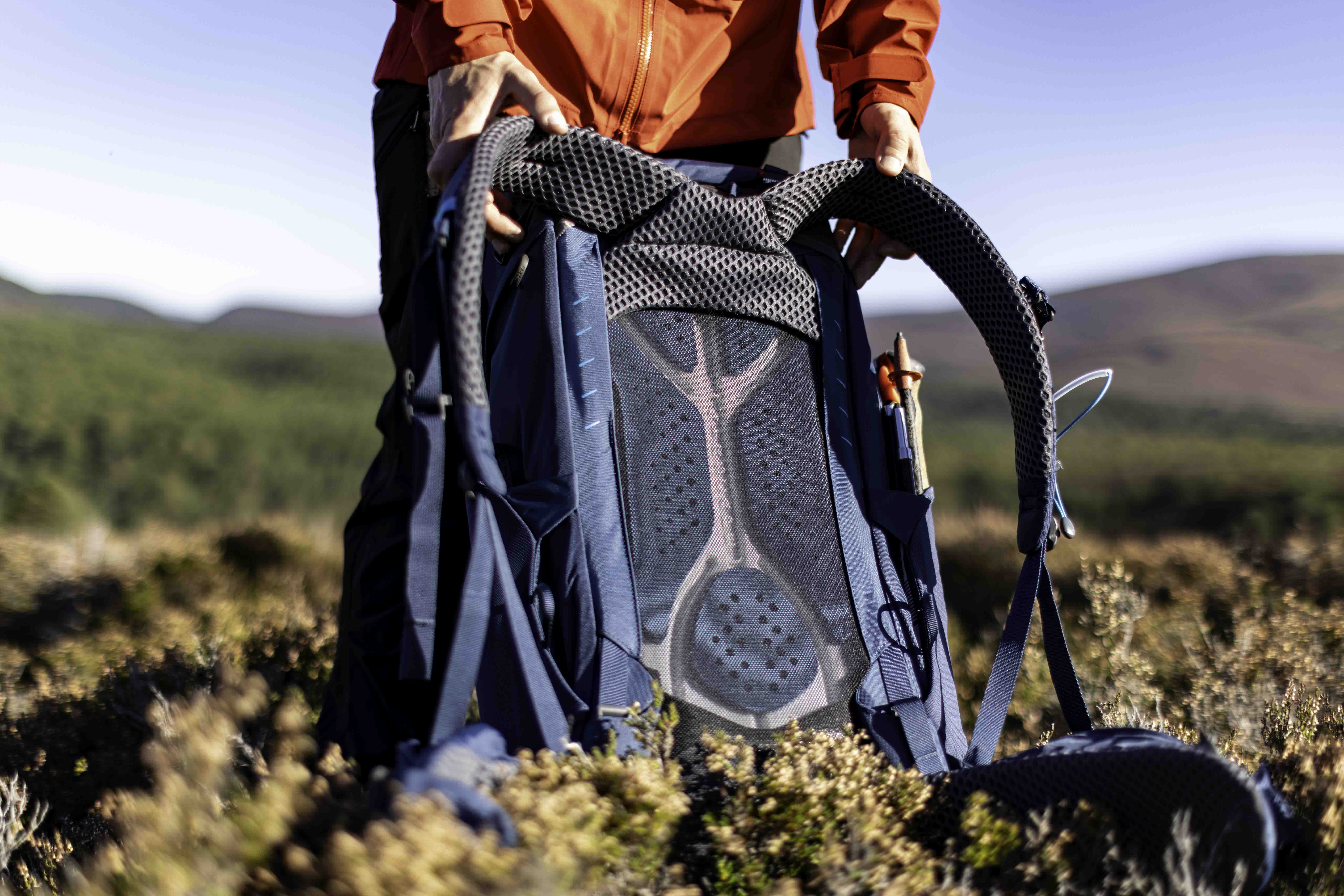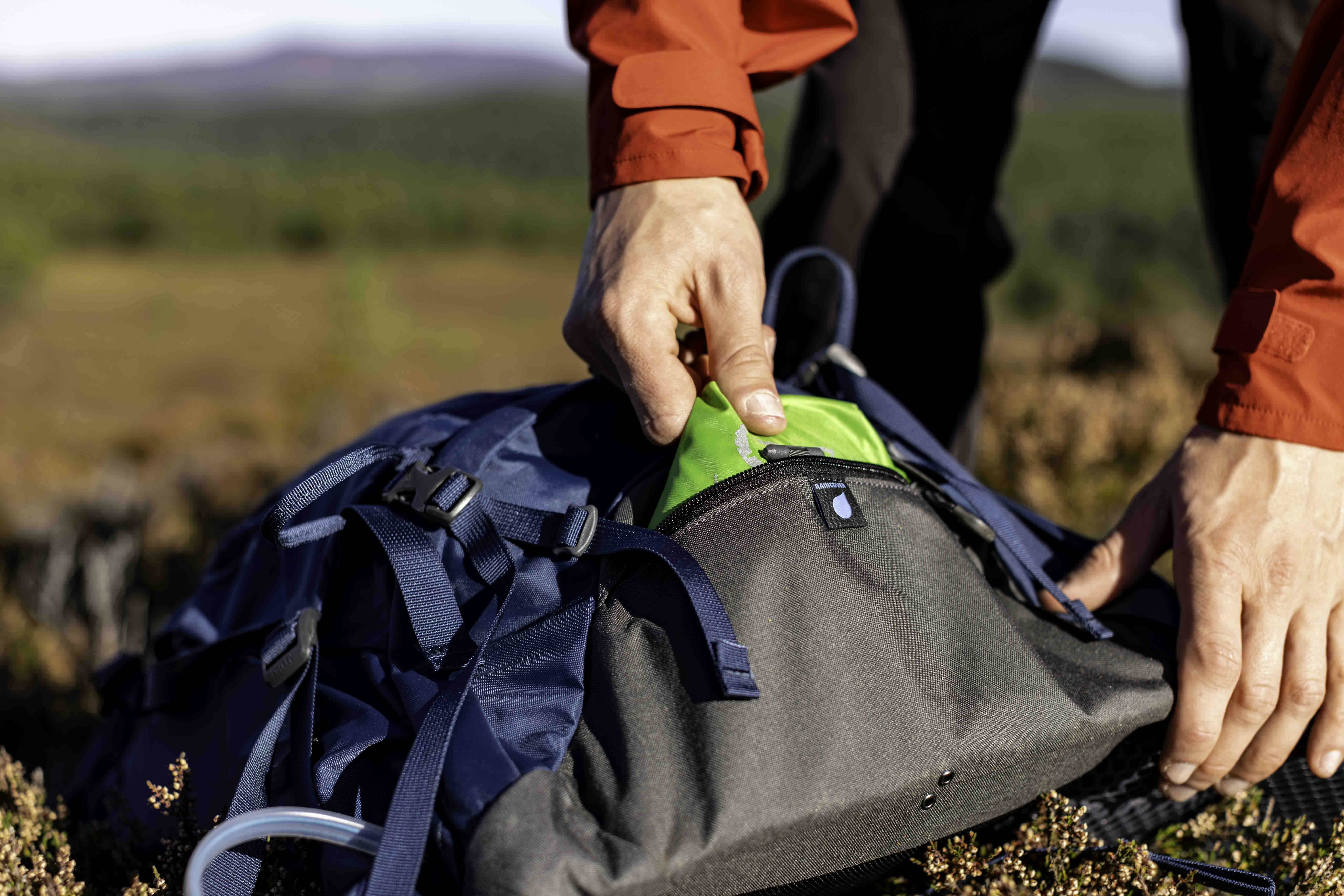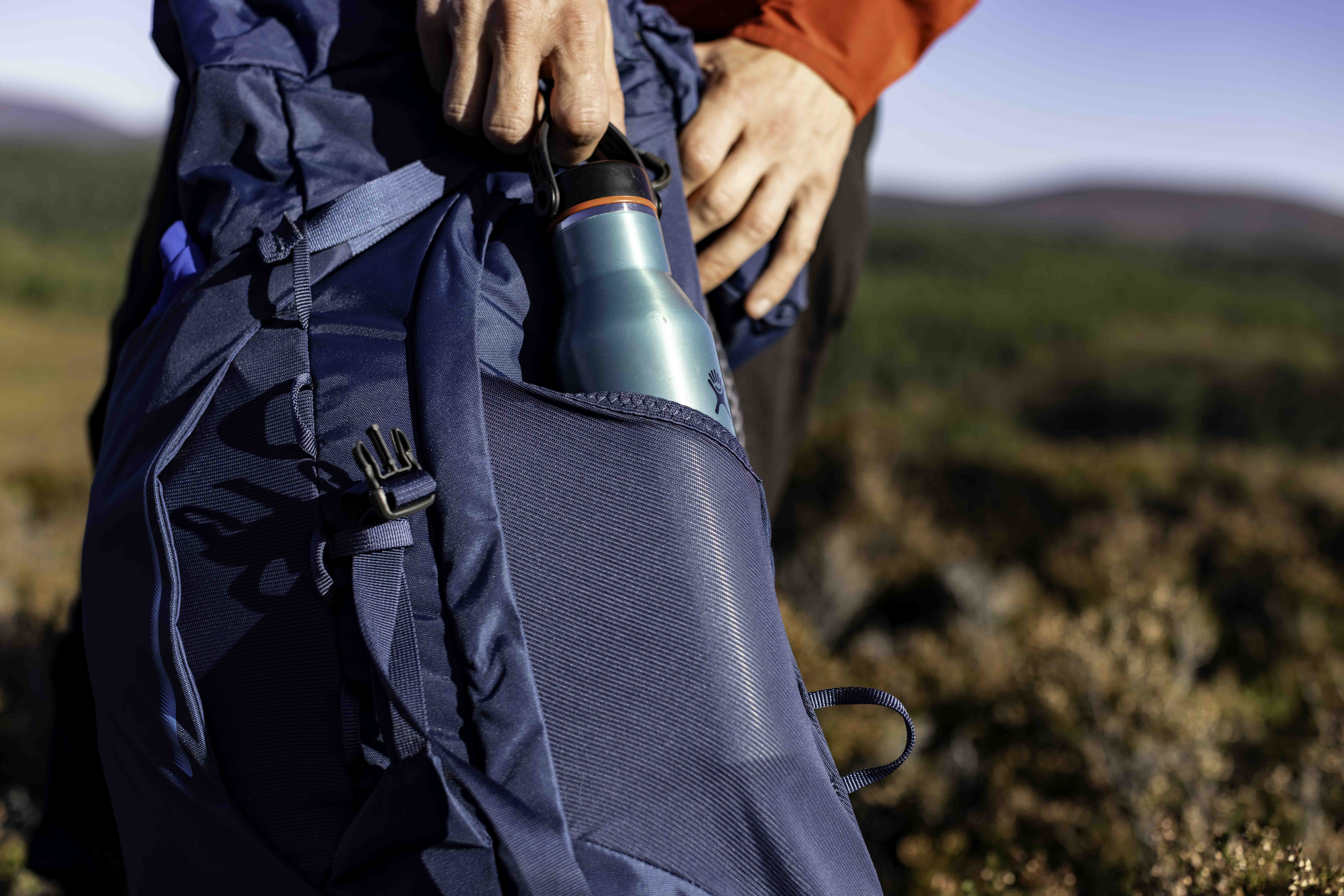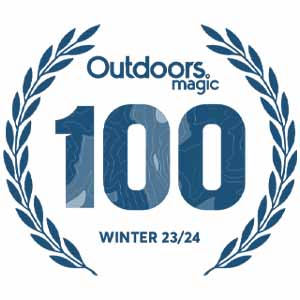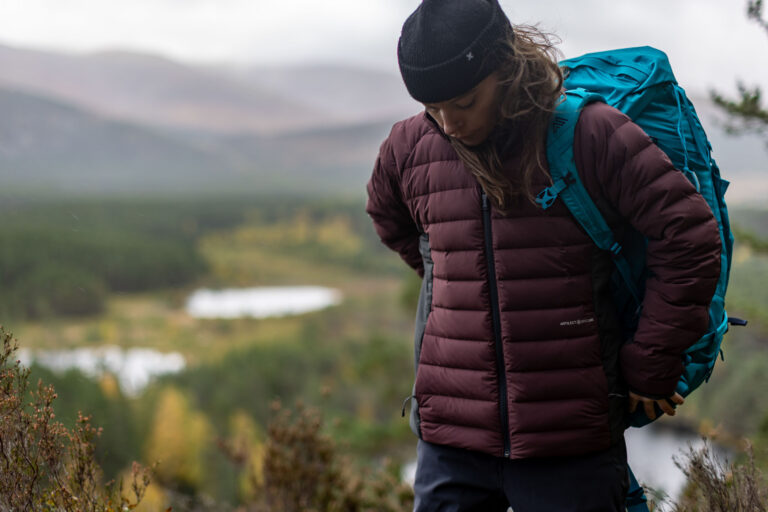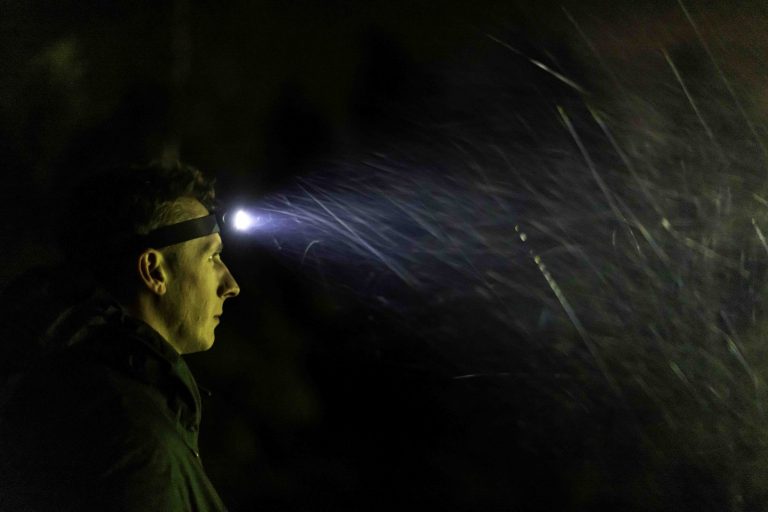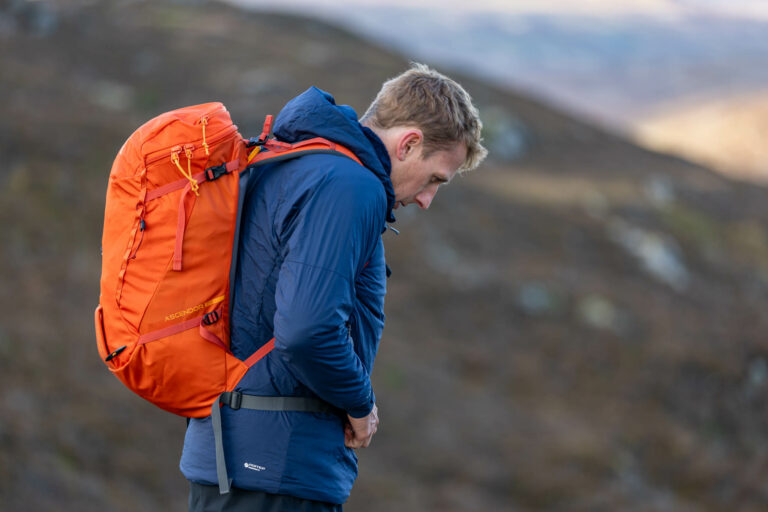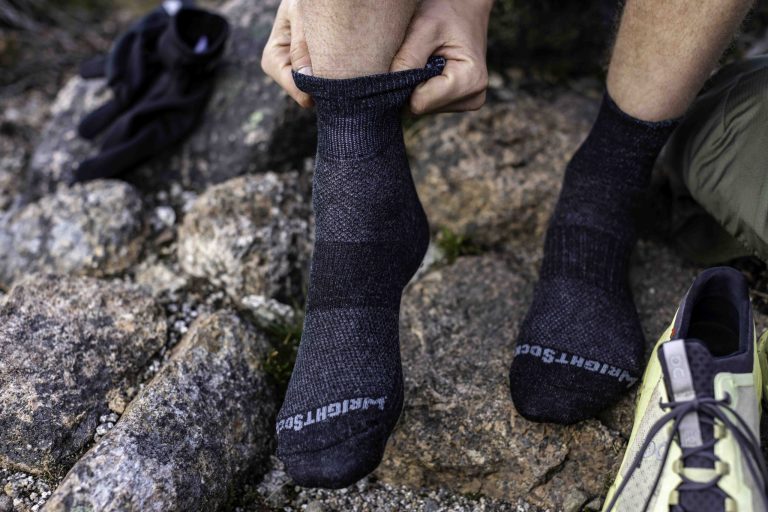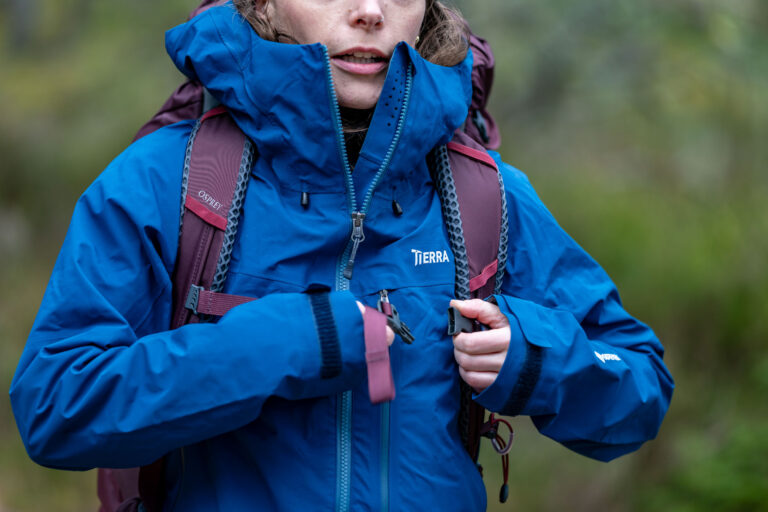If you don’t already have a 35-to-40 litre pack in your quiver, it might be time to think about getting one. Occupying the sweet spot between a large daypack and a small overnight pack, it’s a versatile size that you can use for spur-of-the-moment wild camps or the biggest hill days, including winter adventures when you’re likely to be carrying extra gear and bulkier layers.
Osprey’s Kestrel 38 (or the Kyte for women) is one of our favourite packs in this class. It’s the smallest pack in the well-established Kestrel/Kyte series, which also comes in 48, 58 and 68-litre capacities. But it’s built just as tough as its bigger siblings, with rugged nylon fabrics designed to withstand off-trail hikes and rocky scrambles. In short, it’s a true workhorse pack, ideal if you’re out and about a lot, or just pretty hard on your gear.
And this year’s model is also more eco-friendly than ever. Osprey deserves credit for pursuing maximum sustainability and minimum environmental impact here.
Materials
Back in 2022, Osprey’s Talon Earth series of packs were the first to put sustainability front and centre – an initiative that we highlighted in that year’s OM Green Gear Guide.
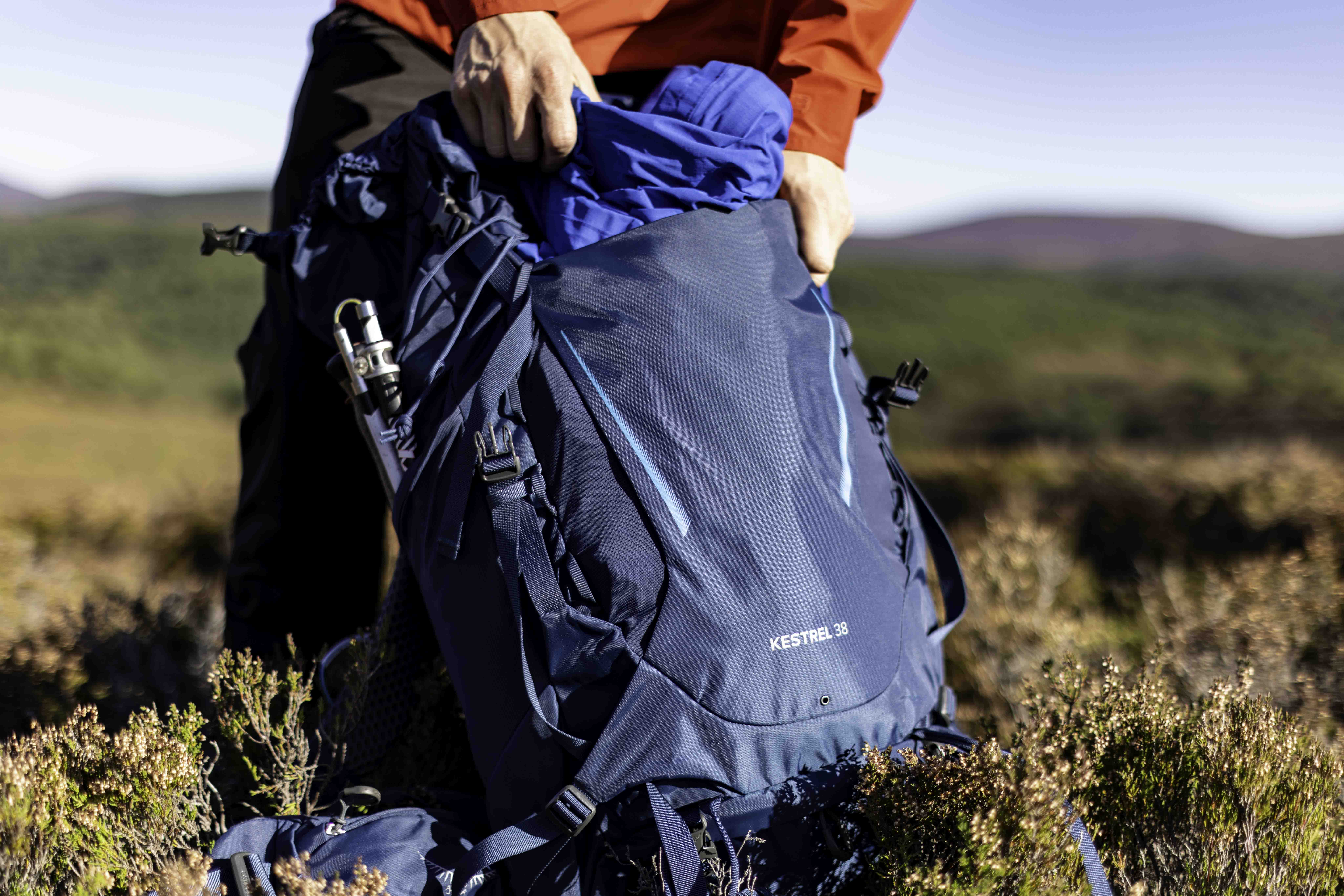
Since then, the brand has been hard at work rolling out sustainability improvements throughout their entire product range. The AW23 Kestrel pack is a great example. The main body of the pack is now made from bluesign approved, 100% recycled 420D nylon, and finished with a durable water repellent (DWR) treatment made without harmful PFCs. Similarly, the rugged base is made from bluesign approved, 100% recycled 500D high-tenacity nylon, also with a PFC-free DWR.
If you’re not familiar with bluesign approval, this is a sustainable certification that assures consumers that textile products are safe for the environment, workers, and customers. It applies to chemicals, processes, materials, and products, helping manufacturers properly manage chemicals and replace harmful substances with safer alternatives.

